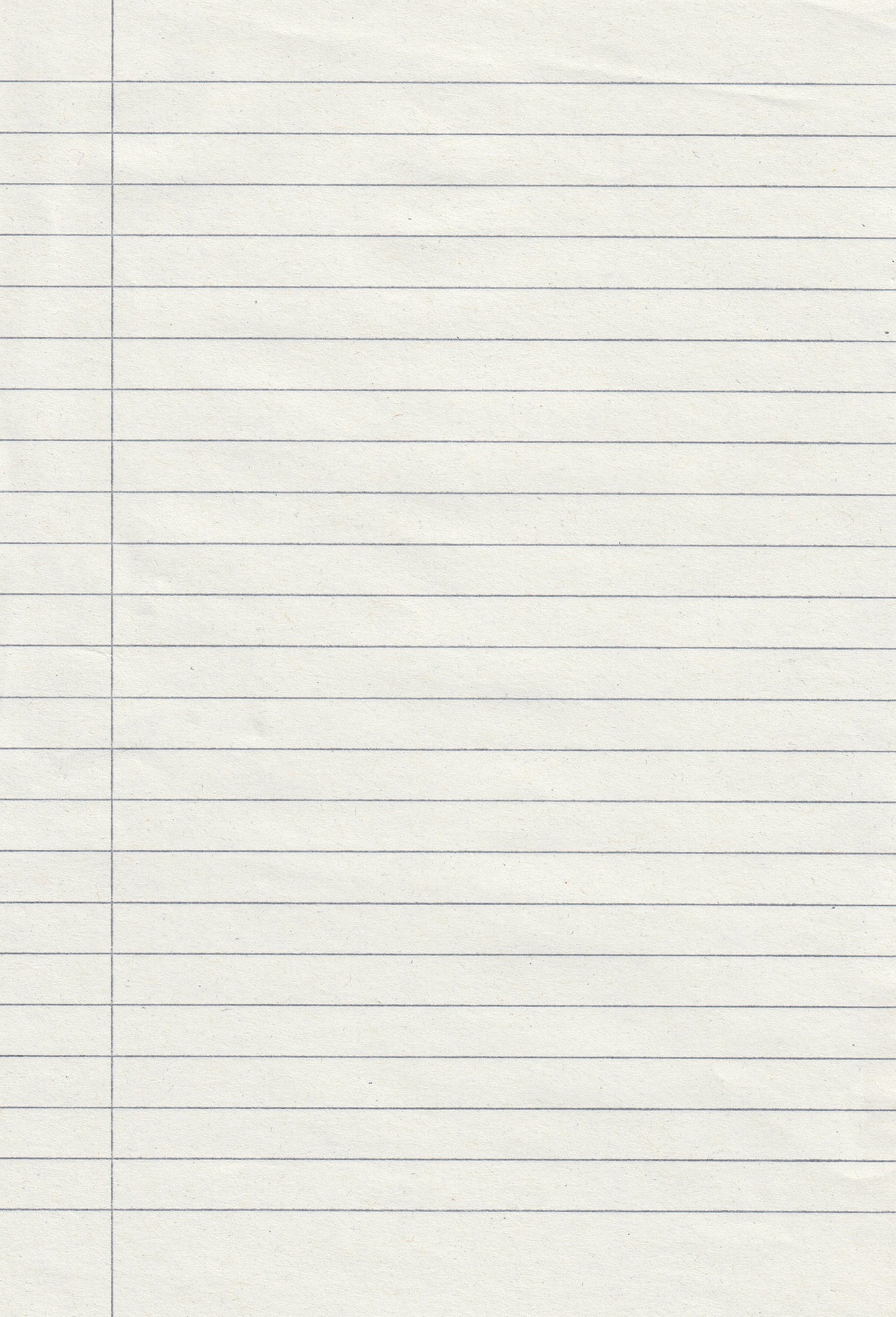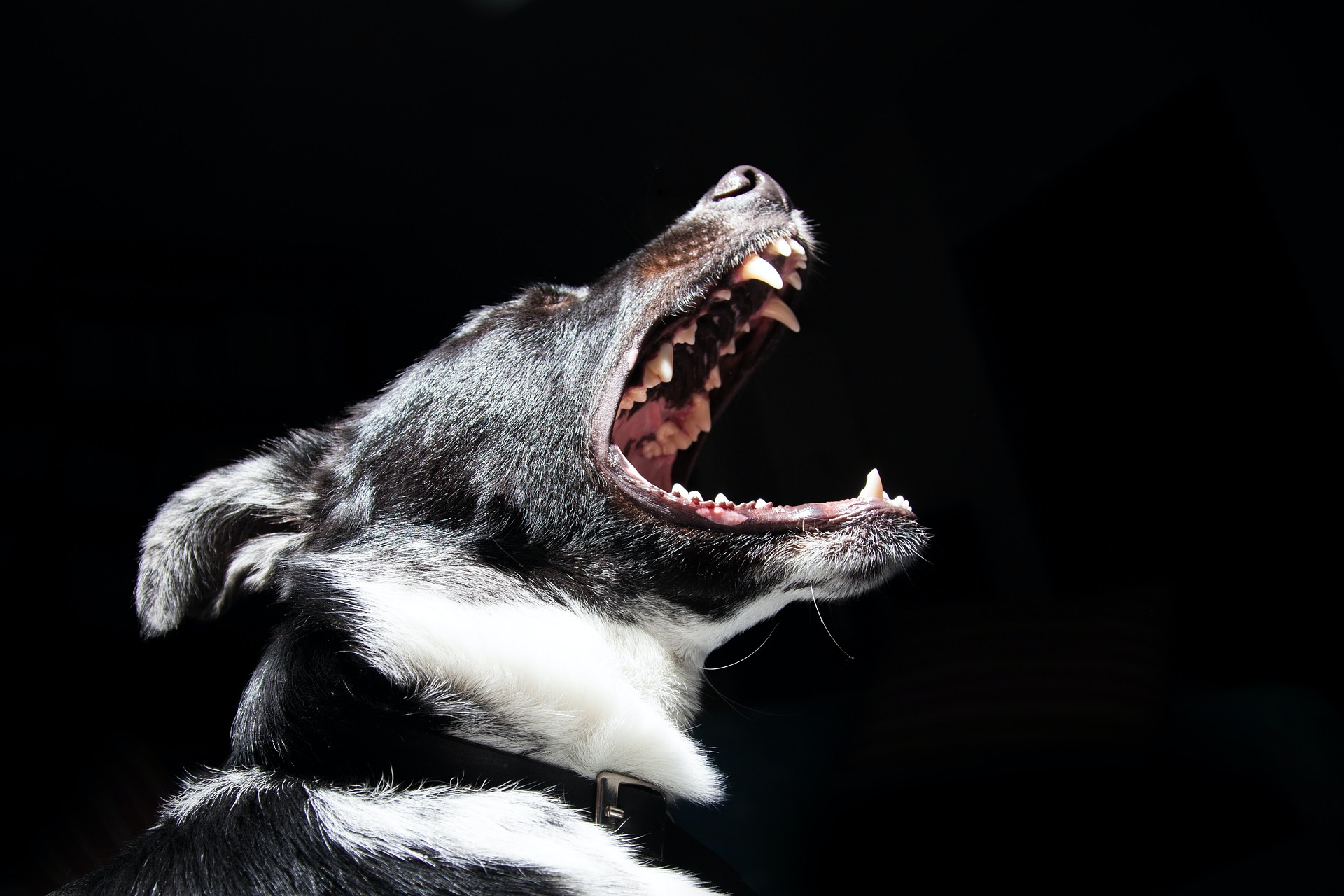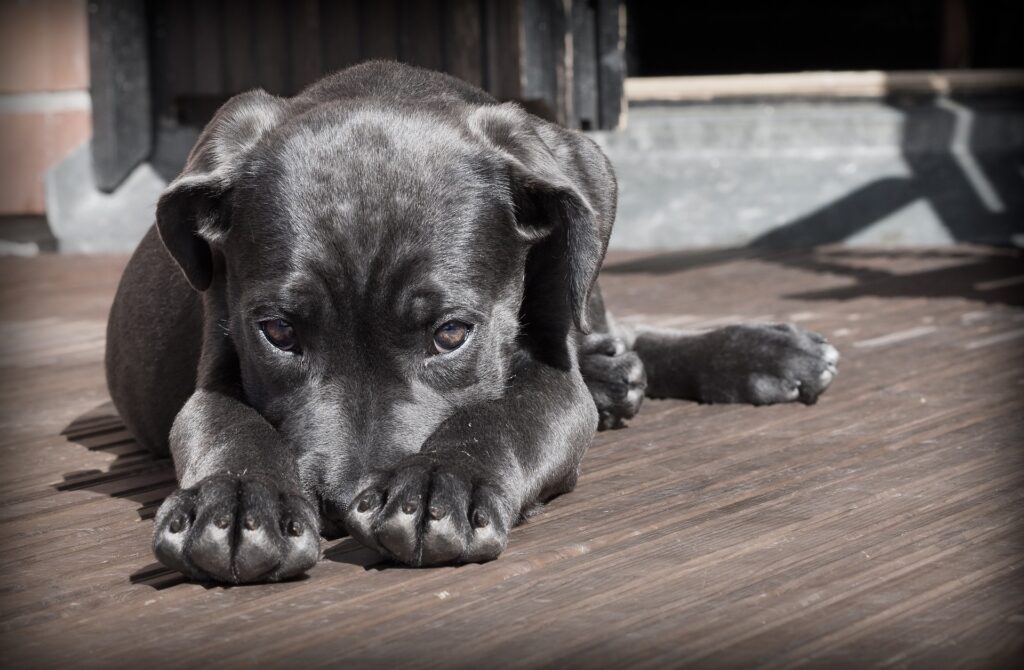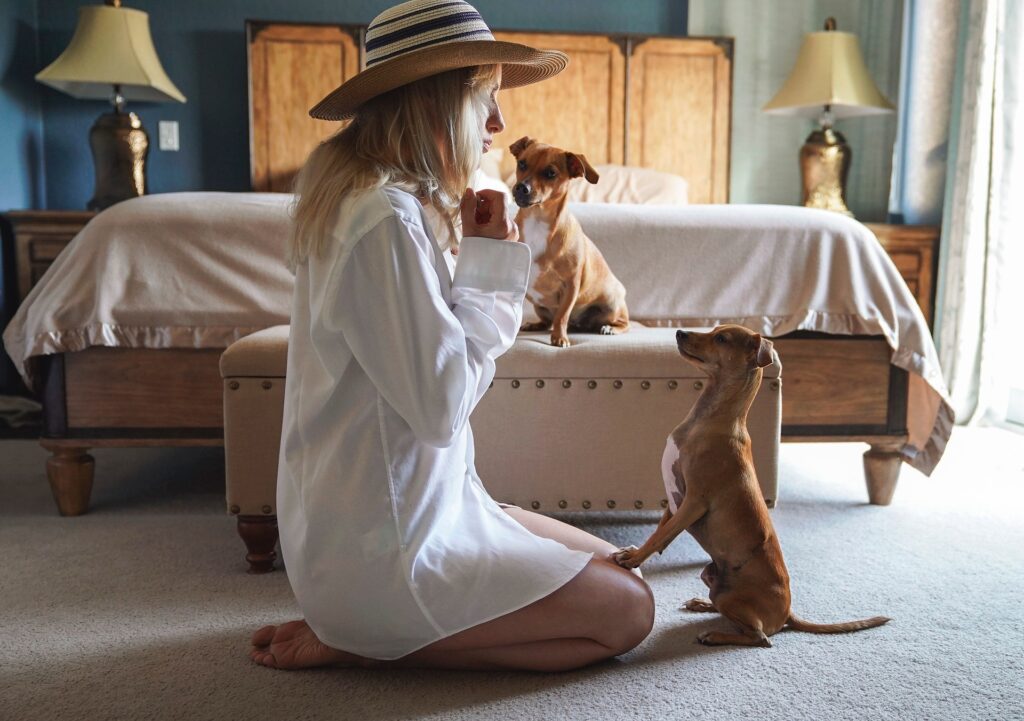The Fourth of July is hard for many animals, our canine companions included. If you have a noise sensitive dog, you are no stranger to the trials and tribulations of the summertime. From thunderstorms to fireworks, our pups have it rough. Even dogs who are not particularly noise sensitive can still struggle with the intensity.
But there’s good news. You can help your dog prepare for the Fourth of July.
We’ve put together our top tips to help your dog out this season. Get started on these things early to see the best results for your pup and give yourself enough time to test them out first before the big day.
This is one of our favorite games to help dogs learn that noises are fun and not scary.

For this game you will need:
- Your dog
- A quiet space
- Tasty treats: We suggest something really yummy and small like soft training treats
- Your phone, computer, or smart device (optional: bluetooth speakers)
- Videos of the noise you’d like to work on: We suggest listening to these on a set of headphones first to make sure they’re the right kinds of noises and also see how intense they are. Volume can change from video to video.
- Have yourself, your dog, and your treats at the ready in the quiet space.
- Press play on your video with the volume turned down to its lowest setting just above mute and play for about five to ten seconds.
- While the video plays, feed your dog treats continuously or scatter a handful of treats onto the floor for them to pick up.
- Stop the video and stop feeding your dog treats.
- Wait about ten to fifteen seconds without the video playing.
- Play the video again for about five to ten seconds and feed your dog continuously during the noise or scatter treats for them again.
- When your dog seems to stop noticing the noise or looks to you when the noise plays, try increasing the volume little bits at a time, always making sure to work at your dog’s pace.
We love this game because it is so easy. We suggest playing it in short bursts multiple times a day rather than doing one long session. Giving your dog breaks from the exercise will help them process what has happened.
You can even play this game in a more sneaky context where you have everything prepared but your dog is going about their daily activities. Play the noise at a low volume and then throw a treat party for your dog!
When playing this game, always remember the order is noise first, then treats. Never do treats and then noise. We want the noise to predict the treats coming, not the treats to predict the scary noises! If you do this in the wrong order, you could make treats no fun. The wrong order can cause dogs to stop eating treats, so be careful.
Doing this game at a slow pace for your dog can teach them that these noises are fun and not something to be scared of. We suggest doing this well in advance to give you the most time to build positive associations before the big day.
Your trusted vet can be a great resource during these difficult times for your dog. Some dogs have reactions that are beyond normal and need some extra help to get through these difficult summer nights. If you’re concerned about your pup’s reactions, talking to your vet about calming options could be just the thing you need.
Vets can offer some great advice when it comes to what’s been tested to help dogs with noise phobias and anxiety. Whatever your vet recommends, make sure to give it a test run under their direction before the big night. You want to make sure that whatever you give your dog does have an effect.
Supervise your dog and make sure they are doing well on the suggested treatment and ask your vet what to look for when it comes to knowing if the treatment is working for your dog or if you need to go back to the drawing board together.
Doing this can help boost your confidence when it comes to the big night, especially if your pup might be hanging out at home while you go see a fireworks show.
Giving your dog a safe space to be in during fireworks can help improve their comfort. Many dogs benefit from having a cozy den-like space. Setting up some blankets under a table or in an open-door kennel they can go in and out of may help them find a place to settle down.
If your dog seeks comfort from you during this time, setting up a cozy den-like space you can both be in together might be just the ticket. Remember, it’s okay to soothe your dog during this time. If you remain confident and are there for them, you won’t be increasing the fear. It’s a common myth that we can reward fear by trying to help our dogs self-regulate.
When looking at your space set up, think about muffling the outside noise as best you can. Some dogs benefit from having other noises in the background. Some ideas for background noises include calming music, a fan, or white noise.
Give these noises a test run to make sure that your dog does find them soothing. Just like with people, dogs can have noise preferences.
If your dog normally uses the bathroom outside, make sure to take them outside before the action starts. Being aware of sundown, when your neighbors might start setting off fireworks in their driveway, and when local fireworks shows start can help you make a plan for your pup. It isn’t any fun when your dog has to hold their bladder all night.
Some folks consider setting up an indoor potty option for their dogs during this time. Looking into some indoor potty patch turf or potty pads could be a life-saver for your pup. While not reasonable for everyone, making exceptions on the Fourth of July could mean your dog has somewhere to go that isn’t your floor.
Anxiety can throw your dog’s routine out of whack, including potty time. Even dogs who have eliminated recently could feel the urge to go again when their anxiety gets high enough.
When it comes to the Fourth of July, being there for our dogs can make all the difference. Make sure to take the time to prepare and think ahead.
If you’re uncertain about what best practices can help your particular dog, talk to your trainer about options.
A trainer who has taken the time to get to know you, your dog, and your situation can provide expert advice tailored to you.

Do you have a dog who suffers from anxiety?
Having an anxious dog can make meeting their needs difficult. Whether it’s trying to go to the vet, getting them exercise, or having them be okay with the handyman, it can be hard to watch your anxious dog struggle with everyday life.
At Really Good Pets, we help dogs with anxiety. Whether that anxiety manifests as shutting down or in aggressive displays, we’re here to help.
We break down the steps needed for each individual dog and tailor training to their needs. Every dog and family is unique.
We can help you get the relief you’re looking for.
Message us for your free consultation and learn more about how we can help you and your dog today.












